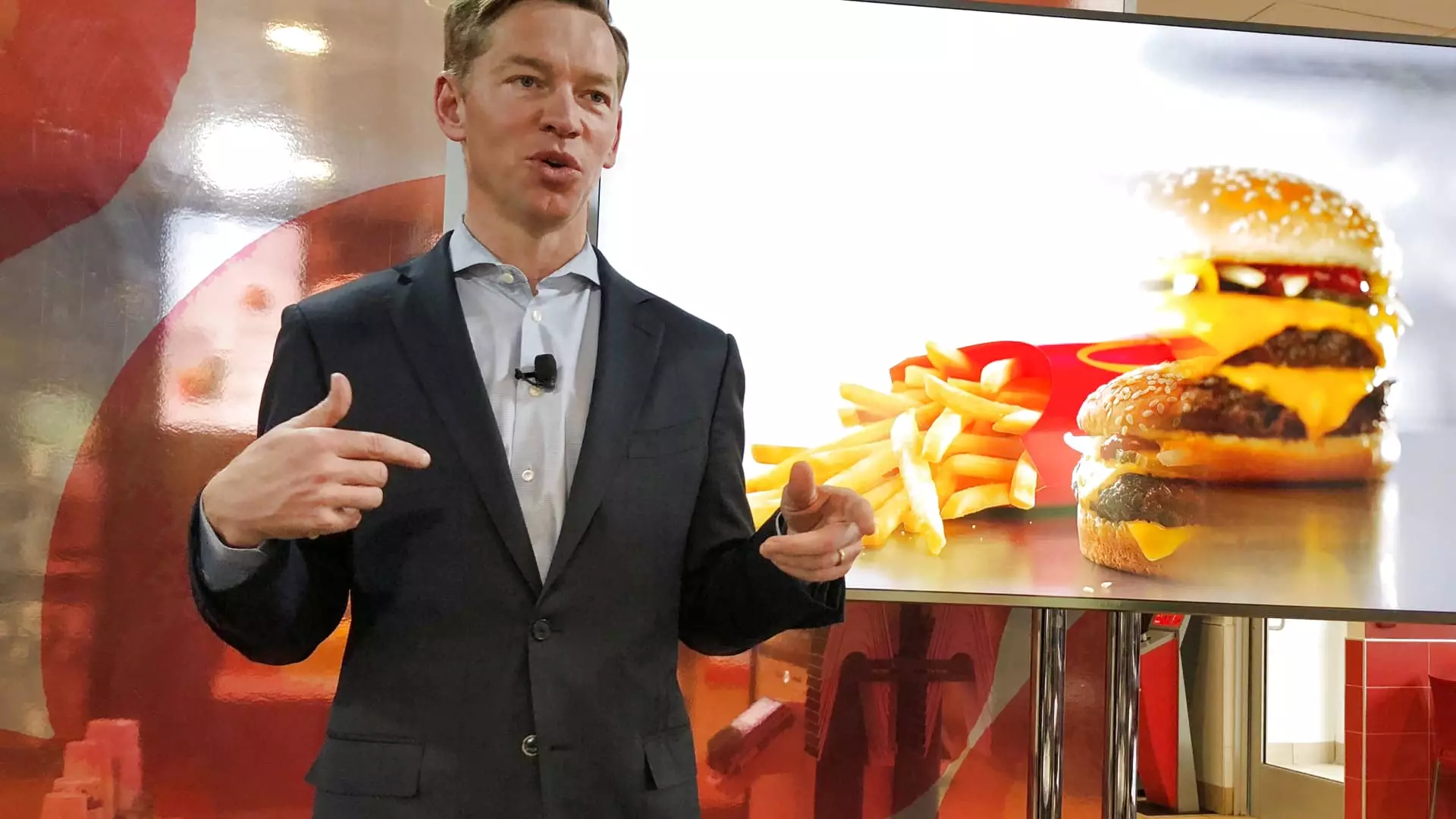The Aftermath of the E. Coli Outbreak: Lessons for McDonald’s and Its Customers

In recent weeks, McDonald’s found itself entangled in a public health crisis when health authorities linked a severe E. coli outbreak to its popular Quarter Pounder burgers. A shocking revelation for a brand revered globally, this incident raised concerns over the company’s food safety protocols and consumer trust. As details emerged, the impact on the fast-food titan was immediate, with sales plummeting and customers hesitating to indulge in one of their flagship offerings.
In a bid to assuage fears and reassure stakeholders, CEO Chris Kempczinski declared during an investors’ call that the worst is behind them. While he acknowledged the gravity of the situation, stating that the outbreak and its effects seem to be contained, he emphasized the company’s commitment to regaining consumer confidence. The stark contrast between boardroom reassurances and the palpable consumer anxiety cannot be overstated. While investors may prioritize recovery timelines and profitability, the voices of the impacted customers tell a different story—one filled with uncertainty toward McDonald’s commitment to their safety.
Investigations and Precautionary Measures
Despite the company’s efforts to demonstrate due diligence, an ongoing investigation by the FDA regarding the source of the E. coli—specifically the slivered onions—underscores the uncertainty that lingers in the public sphere. The decision to halt sourcing from the implicated supplier indicates McDonald’s limits responsibility, but this raises questions regarding their vetting processes. The shadows of this incident may affect their long-term brand perception more severely than anticipated.
While Kempczinski announced that they would gradually reinstate Quarter Pounder sales in 3,000 restaurants, including critical markets across the country, the numbers paint a mixed picture. CFO Ian Borden disclosed that amid the crisis, daily sales took a hit, revealing a delicate balance of consumer trust and corporate stability. The uncertainty surrounding food safety has forced McDonald’s to navigate not only the logistics of product management but also the intricate dynamics of public relations and brand recovery.
Mitigating Damage and Restoring Trust
Borden articulated a proactive strategy aimed at reassuring diners, focusing on restoring the momentum that had characterized the brand earlier in the month. The introduction of new items, effective marketing strategies, and value-driven pricing models are part of this recovery plan. However, while McDonald’s can control promotional tactics, the public’s perception system operates on deep emotion—the impact of fear and worry cannot be dismissed. The ripples of this outbreak may linger, leading consumers to reevaluate their culinary choices.
The aftermath of the outbreak has not just prompted health-related scrutiny but also legal ramifications, with lawsuits filed against the company by affected individuals. These legal challenges amplify the seriousness of the situation and highlight the risks involved when large corporations fail to uphold food safety standards. The very image of McDonald’s as a trusted food provider is placed under a magnifying glass, and the outcome of these lawsuits could potentially reshape the landscape of consumer trust and corporate responsibility.
While McDonald’s is making strides to emerge from this crisis, the path to recovery is framed with challenges that extend beyond the immediate financial implications. The leadership must remain vigilant—not just in addressing the current outbreak’s fallout but in establishing long-term changes in food safety and consumer transparency. The lesson here is clear; as public sentiment evolves, companies must adapt, ensuring that the trust between brand and consumer is nurtured and fortified—not merely mended. The brand’s commitment to excellence must permeate through every layer of its operations to avoid such pitfalls in the future. In an age of heightened awareness concerning health and safety, the stakes are higher than ever for McDonald’s as it strives to reaffirm its position as a global leader in fast food while safeguarding its patrons’ well-being.





